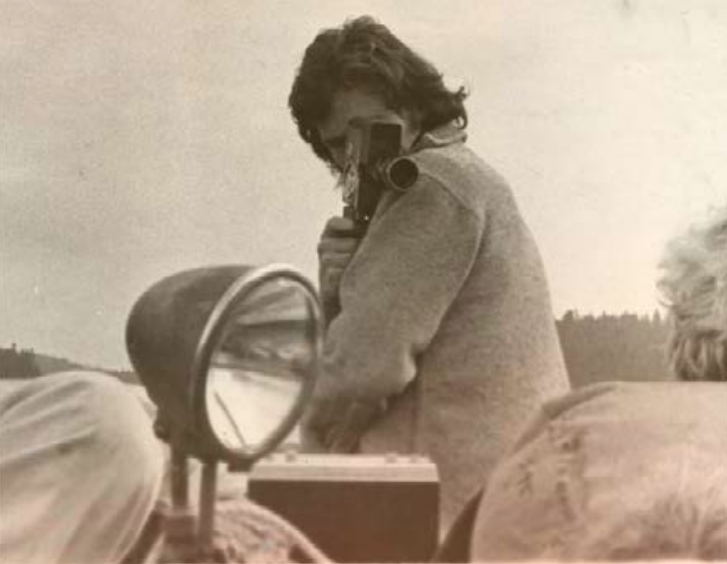David Rimmer
Born 1942 in Vancouver. Professor of film at the Emily Carr College of Art and Design there. David Rimmer began making films in the late 1960s. Early works such as Square Inch Field (1968) and Migration (1969) were influenced by the lyrical-poetic films of Stan Brakhage and Bruce Conner as well as Rimmer's preoccupation with oriental music.
At the beginning of the 1970s, his interest shifted to formal questions of film design. His works from this period include Surfacing on the Thames, Cariations on a Cellophane Wrapper, The Dance (1970) and Seashore (1971). He was one of the first structural film artists to use anonymous found footage. He was particularly fascinated by film loops, which in his works, however, never demonstrate simple repetitions of a sequence, but are always subjected to subtle to strong interventions.
Characteristic of Rimmer's films is their pronounced poetic sensibility, which they radiate despite or rather because of their formal qualities. From Canadian Pacific onwards, Rimmer dispenses with the strictly reductive charm of his early films and unfolds an almost meditative intensity of image perception.
Program
Migration (CAN 1969, 16mm, 10 Min.)
Surfacing On The Thames (CAN 1970, 16mm, 9 Min.)
Variations On A Cellophane Wrapper (CAN 1970, 16mm, 8.5 Min.)
Real Italian Pizza (USA 1971, 16mm, 13 Min.)
Canadian Pacific (CAN 1975, 16mm, 9 Min.)
Black Cat White Cat It's A Good Cat If It Catches The Mouse (CAN 1989, 16mm, 35 Min.)
Bricolage (CAN 1984, 16mm, 11 Min.)
As Seen On TV (CAN 1986, 16mm, 14 Min.)
Divine Mannequine (CAN 1989, 16mm, 7 Min.)
Beaubourg Boogie Woogie (CAN 1991, 16mm, 5 Min.)
Tiger (CAN 1994, 16mm, 5 Min.)
Local Knowledge (CAN 1992, 16mm, 30 Min.)
for more information see downloads
eine Veranstaltung von sixpackfilm
Moderation Brigitta Burger-Utzer
© image CINEINFINITO

